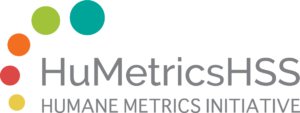Setting the Scene
Personal vs. Structural Rewards
Warm-Up Exercise: OneTens
~5-10 minutes
This exercise is intended to get everyone into the spirit of how the workshop will run; in person, this would be done by having everyone stand up and move to one side of the room or the other to indicate agreement/disagreement with the statements below, then as an ice breaker be encouraged to speak to their neighbors in the spectrum of agreement. The goal is to establish an expectation of full-group participation. In a virtual format, this exercise also serves to familiarize your participants with card-sorting activities.
Ask your participants to indicate where they fall on a scale of one to ten (one being full disagreement, ten being full agreement) for the following statements:
-
- Dogs are better than cats (or some other ice-breaker).
-
- What I do in my daily life reflects why I became an academic or why I wanted to work at a university.
-
- I am rewarded and recognized through a system of evaluation that represents the full scope of my scholarly work.
Once they have rated their answers, ask whether anyone would be willing to share their reason for placing themselves at that point on the scale, and encourage them to talk to those who have placed themselves one or two points higher or lower, as well as with those at the extremes.
Introductions; Personally Rewarding Work vs. "Timesucks"
Time varies based on number of participants.
Before you have your participants introduce themselves, ask them to take two minutes to think about a moment in their scholarly career that they found personally rewarding, a memorable experience that has enhanced their scholarly life.
Once they've had a chance to think, they'll introduce themselves with their names, their departments or units, and a short summary of said moment. Emphasize these introductions should be short and fast — no more than one minute each. Feel free to time people and be firm, though we don't encourage people actually cutting off microphones, etc.
Examples memorable experiences from previous workshops include:
-
- Collaborating with students
-
- Engaging in public scholarship
-
- Witnessing the success of their mentees
-
- Long-term inspiration of students (e.g., hearing from them years after they've graduated)
Quick exercise:
5 min
What other work do you do in your day-to-day activities that nobody has mentioned in this round-up of rewarding work? How else do you spend your time?
Things that often come up in this portion include:
-
- "Problem-solving," both interpersonal and logistical
-
- Writing articles or books
-
- Meetings and "cat herding" colleagues, managing both downward and upward
-
- Recruitment
The purpose of this exercise is to gather a set of practices — activities that scholars/participants take part in — that are associated with the best, most enriching moments in their scholarly careers. You (and any other facilitators) will gather these in one place (in a Google doc or on large sheet of paper), then supplement the list with any activities that are part of the work of the academy but that haven't yet been named.
Finally, participants will mark the list of practices with distinct colors (in the Google doc, using a card-sorting program like Klaxxoon, or with colored stickers) indicating three things:
-
- Color one: Reiterating the things they personally find rewarding
-
- Color two: Indicating the things that take up most of their time
-
- Color three: Indicating the things that are rewarded — through evaluation, promotion and tenure, prestige, etc. — in the current reward structures of the academy
You may want to limit how many of each sticker your participants may place, but the idea here is volume, not specific number. Look at where most of each color congregates. Often, the disconnect between what is personally rewarding and what is institutionally, structurally rewarded is stark. Discuss those places briefly, as well as any places the two might align — these are places where you can learn from good examples already being set in your community.
Session Summary:
Your participants have just provided us with a long list of things they do, many of them process-based (e.g., writing an article). One of the goals of the HuMetrics project is to break down what seems like a singular event or a singular outcome into the various processes that comprise it. By laying out all the small decisions that lead to any kind of scholarly activity or output, a scholar realizes that they have more opportunities to inflect their scholarly process with values than they might think.
Exercise 1 explores this step in more depth.
